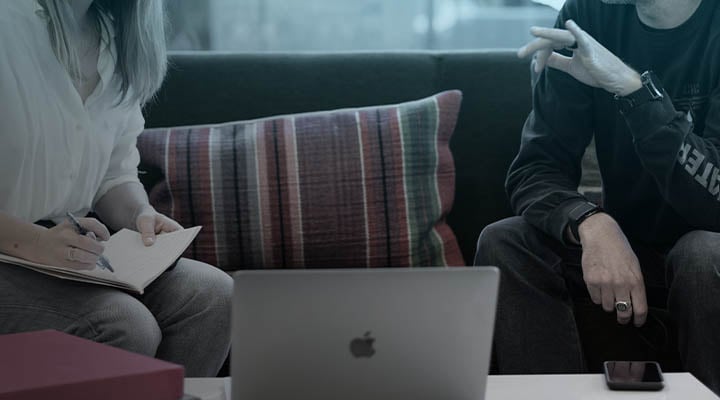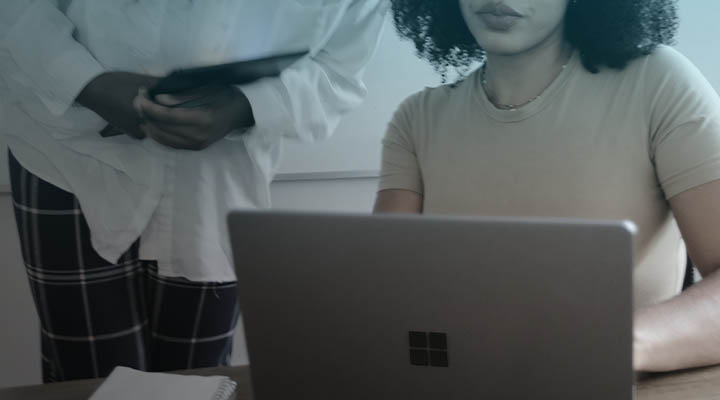My journey didn’t start in the tech industry, I studied Biology and Biological Sciences at university. In my second year at university, I volunteered to help children at a primary school, teaching kids to read, and also at a secondary school as a translator for Bengali and Hindi. This volunteering helped me find a passion for teaching, so after my second year of university I applied to Cambridge to study a PGCE in Secondary Science which would allow me to teach Science at schools. After I finished this course, I went on to teach Science at an all-boys secondary school for four years.
My personal life (I got married) meant that I had to relocate, and I didn’t want to teach in a secondary school, so I started at a company where they send teachers into primary schools to help provide clubs about tech and computing. During this time, I taught myself basic coding such as loops and conditionals, and used Scratch with the school kids.
Then the pandemic hit and I was furloughed. I had a lot of free time and decided to teach myself how to code – the course I completed was an introduction to Computer Science provided by Harvard University. I really enjoyed this so when I finished this course, I did another one which allowed me to learn Python and Javascript. By this point the pandemic was coming to an end and I realised I didn’t want to teach anymore.
I really liked computing and learning to code so I decided to apply for jobs. I was searching online but was sceptical because I wasn’t a graduate, and the majority of jobs were looking for graduates in Computer Science. I came across the BJSS Academy who accepted career changers, so I applied.
Joining the Academy
The technical interview for the BJSS Academy was my favourite interview that I have done. It was a very enjoyable experience - I never thought interviews could be that enjoyable. Everyone involved was lovely and they put my mind at ease during the interview. I also really enjoyed the actual coding problem.
And then I got accepted into the BJSS Academy!
At first I was worried, but it was nice to see I wasn’t the only one. The Academy wasn’t full of graduates and I wasn’t the only person changing careers – other people had done other degrees previously.
The Academy was very intense. I learnt so much in four weeks, but I liked this pace because the Academy wasn’t slow or dull, and I got to touch a variety of technologies.
I liked working in groups and it was a great experience to meet new people who were like minded. The buddy system meant that I was always supported. I was never left alone and there was always someone to answer any questions I had and guide me.
After finishing the Academy, I was put onto my first project – working for the Home Office. This was a daunting experience at first as I was learning the processes of the project and ticket workflows.
At first, I experienced some imposter syndrome as I had just come from the Academy and felt like a graduate, whereas people on my team had been working on this project for years or in other departments. But once I got into it and completed a few tickets I got familiar with people on my team and realised everyone was really friendly. I really liked my team on the project and we all get along well.
It was great to be working with people that I could talk to about anything, everyone was very respectful, and respected my views and opinions.
Advice
If you’re not a graduate of Computer Science, or you don’t come from that background but have a passion for coding, the BJSS Academy is a great way to start. When looking for other jobs I didn’t see any job offers like this. As a career changer I’m very grateful.
The Academy allows you to see what path you want to take, whether you want to be a data engineer, software engineer, or platform engineer. The Academy teaches you these different paths, what type of work you will be completing, and what your day to day would look like.
If you want to go into software development a degree is great, but if you don’t have one all you need is some passion. Start doing some online courses and solve coding problems, which are completely free. YouTube also has lots of content for learning about coding and helpful tutorials.
Published
April 29, 2024Reading time
3 minutesRelated posts





